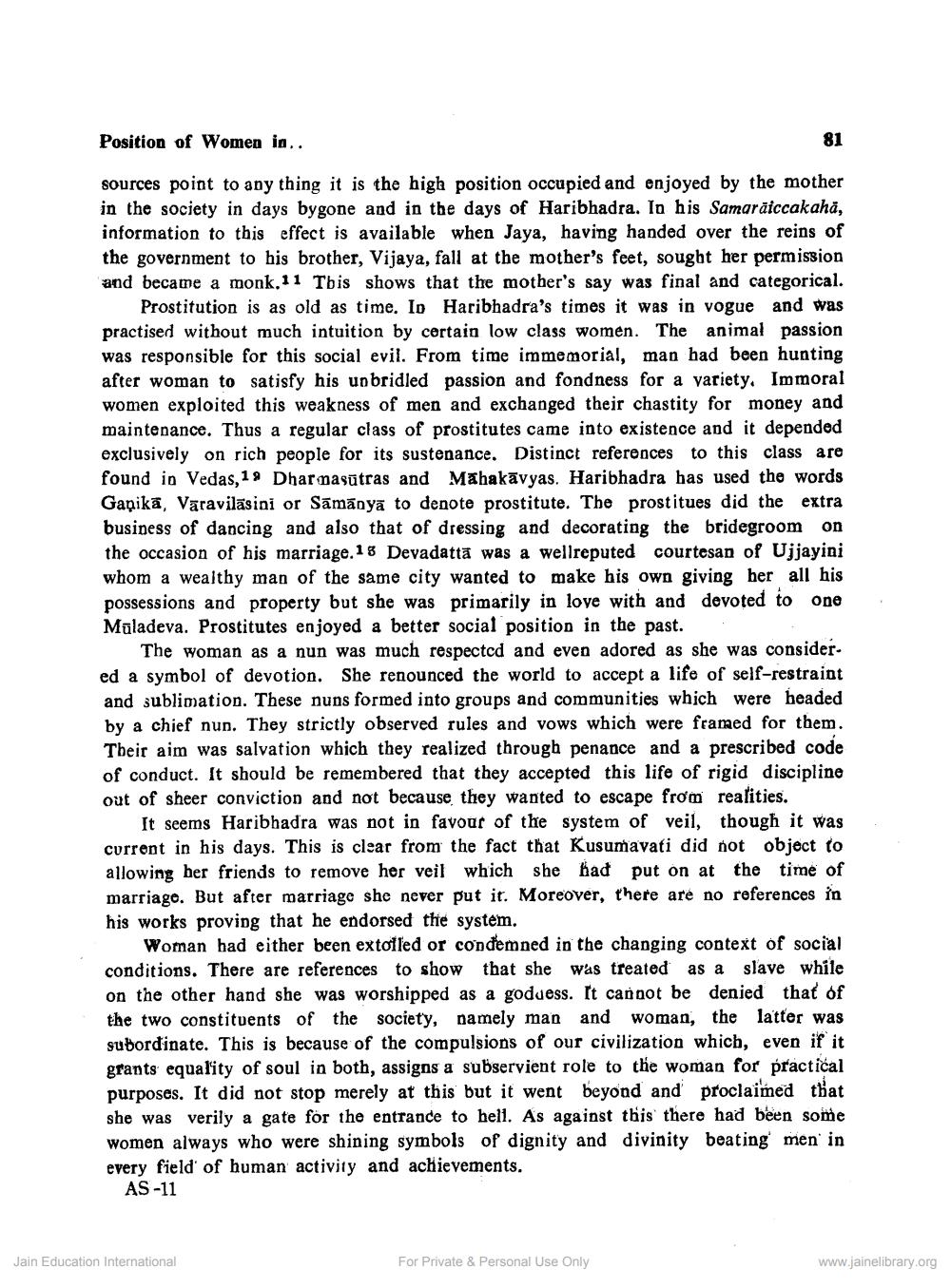________________
Position of Women in..
sources point to any thing it is the high position occupied and enjoyed by the mother in the society in days bygone and in the days of Haribhadra. In his Samaräiccakaha, information to this effect is available when Jaya, having handed over the reins of the government to his brother, Vijaya, fall at the mother's feet, sought her permission and became a monk.11 This shows that the mother's say was final and categorical.
81
Prostitution is as old as time. In Haribhadra's times it was in vogue and was practised without much intuition by certain low class women. The animal passion was responsible for this social evil. From time immemorial, man had been hunting after woman to satisfy his unbridled passion and fondness for a variety. Immoral women exploited this weakness of men and exchanged their chastity for money and maintenance. Thus a regular class of prostitutes came into existence and it depended exclusively on rich people for its sustenance. Distinct references to this class are found in Vedas,19 Dharmasatras and Mahakavyas. Haribhadra has used the words. Ganika, Varavilasini or Samanya to denote prostitute. The prostitues did the extra business of dancing and also that of dressing and decorating the bridegroom on the occasion of his marriage.18 Devadatta was a wellreputed courtesan of Ujjayini whom a wealthy man of the same city wanted to make his own giving her all his possessions and property but she was primarily in love with and devoted to one. Maladeva. Prostitutes enjoyed a better social position in the past.
The woman as a nun was much respected and even adored as she was consider. ed a symbol of devotion. She renounced the world to accept a life of self-restraint and sublimation. These nuns formed into groups and communities which were headed by a chief nun. They strictly observed rules and vows which were framed for them. Their aim was salvation which they realized through penance and a prescribed code of conduct. It should be remembered that they accepted this life of rigid discipline out of sheer conviction and not because they wanted to escape from realities.
It seems Haribhadra was not in favour of the system of veil, though it was current in his days. This is clear from the fact that Kusumavati did not object to allowing her friends to remove her veil which she had put on at the time of marriage. But after marriage she never put it. Moreover, there are no references in his works proving that he endorsed the system.
Woman had either been extolled or condemned in the changing context of social conditions. There are references to show that she was treated as a slave while on the other hand she was worshipped as a goduess. It cannot be denied that of the two constituents of the society, namely man society, namely man and woman, the latter was subordinate. This is because of the compulsions of our civilization which, even if it grants equality of soul in both, assigns a subservient role to the woman for practical purposes. It did not stop merely at this but it went beyond and proclaimed that she was verily a gate for the entrance to hell. As against this there had been some women always who were shining symbols of dignity and divinity beating men in every field of human activity and achievements,
AS-11
Jain Education International
For Private & Personal Use Only
www.jainelibrary.org




